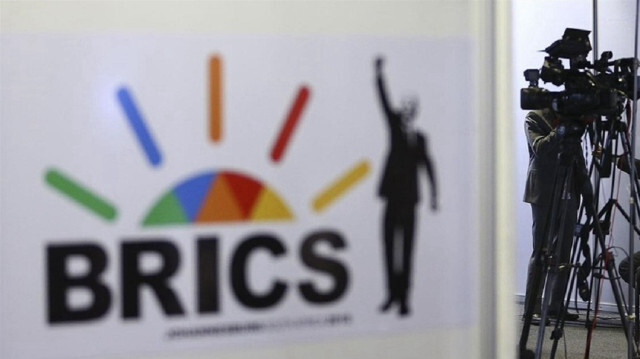
Accepting new members, economic cooperation, trade agreements and the challenges faced by BRICS member countries will be among the key topics
Russia will host a summit of the BRICS economic bloc in Kazan on Oct. 22-24, with attendance expected from several world leaders.
According to Russian Presidential Aide Yury Ushakov, 32 countries have confirmed their participation, with 24 being represented by their heads of state, while the remaining eight will send high-ranking officials.
In addition, the secretaries-general of several international organizations will take part in the event, including UN chief Antonio Guterres, said Ushakov.
- Key topics
Major topics at the summit are likely to include economic cooperation, trade agreements and the challenges faced by BRICS members, such as geopolitical tensions, the global economic slowdown and climate change.
Russia will likely highlight multilateralism, using the BRICS platform to counter Western-dominated global governance structures.
Brazilian President Luiz Inacio Lula da Silva, who has highlighted the importance of the summit in strengthening multilateralism, was scheduled to participate.
He canceled his trip to the summit, however, after receiving medical advice to temporarily avoid long flights after suffering a head injury at home which caused a minor brain hemorrhage and will now take part in the meeting via videoconference.
The Brazilian Ministry of Foreign Affairs has outlined plans for a declaration focused on equitable global development and security, which they believe will resonate strongly among member nations.
Meanwhile, Russian officials are emphasizing the summit as a platform for showcasing a model of international relations distinct from the West. The Kremlin framed the summit as an opportunity to discuss vital global issues like the Middle East crisis and the future of the BRICS bloc.
Chinese President Xi Jinping will also attend, marking a significant moment, as this will be the first summit with the bloc's new members, including Egypt, Iran and Saudi Arabia. The participation of these countries reflects a broader expectation of increased cooperation and influence within the BRICS framework.
Meanwhile, Western politicians are interpreting the gathering as a counterweight to Western influence, particularly as discussions may touch on geopolitical tensions and economic strategies that challenge established Western alliances.
- New members
Last year, the bloc invited six more nations — Argentina, Egypt, Ethiopia, Iran, Saudi Arabia and the United Arab Emirates (UAE). However, Argentina has since withdrawn following the election of pro-Western President Javier Milei.
Saudi Arabia officially announced its plans to join BRICS in August 2023 as part of a significant expansion of the organization, and the actual formalization of its membership began in January 2024.
There are rumors about delays or Riyadh's incomplete membership in the association, but the kingdom's authorities have never said they changed their decision about participating in the bloc.
According to Ushakov, this year, the BRICS leaders will consider accepting new members at the summit. As of now, 34 states are seeking either full membership or cooperation in other forms, he said.
Among countries from Africa, Ushakov mentioned Algeria, Morocco, Nigeria, Chad, Equatorial Guinea, Eritrea, Senegal, Zimbabwe and South Sudan, from Asia and the Middle East -- Azerbaijan, Bangladesh, Bahrain, Indonesia, Kazakhstan, Kuwait, Palestine, Pakistan, Syria, Thailand, Vietnam, and Sri Lanka, from Latin America -- Bolivia, Venezuela and Honduras, and from Europe -- Belarus. Meanwhile, Türkiye has also shown interest, viewing BRICS as a complementary platform to its existing partnerships.
According to Ushakov, the Russian side is working on the selection criteria and candidacies of such partner countries.
"Both these criteria and a specific list of possible partners should be agreed upon by all BRICS members and submitted for approval at the Kazan summit -- political and economic weight, support for the principles of multipolarity and increasing the role of developing countries in global governance, as well as the fundamental values of BRICS, including the spirit of equality, mutual respect, openness, inclusivity, and constructive cooperation," he said.
The well-established format of interaction with friends and like-minded countries -- outreach/BRICS Plus -- will continue its work as well, he said.
- Disputes between China and India
China and India, two of the largest BRICS members, have had a complex relationship marked by both cooperation and competition.
The most significant cause of tension is the unresolved border dispute, particularly in the Ladakh region. The two countries have clashed several times along the Line of Actual Control (LAC), with a violent skirmish in 2020 escalating tensions.
Both nations also vie for influence in South Asia and the Indian Ocean region. India is wary of China's Belt and Road Initiative and its expanding presence in neighboring countries like Pakistan and Sri Lanka.
In addition, India has expressed concerns about its growing trade deficit with China. There are also concerns about dependency on Chinese imports, especially in areas like electronics and pharmaceuticals.
Also, India's growing defense cooperation with the US and participation in the QUAD alliance (with the US, Japan and Australia) has been perceived as a counterbalance to China's influence, increasing friction between the two.
Commenting on the China-India rivalry, Russian Foreign Minister Sergey Lavrov said BRICS, among other things, serves as a good platform for the two countries to address their issues.

